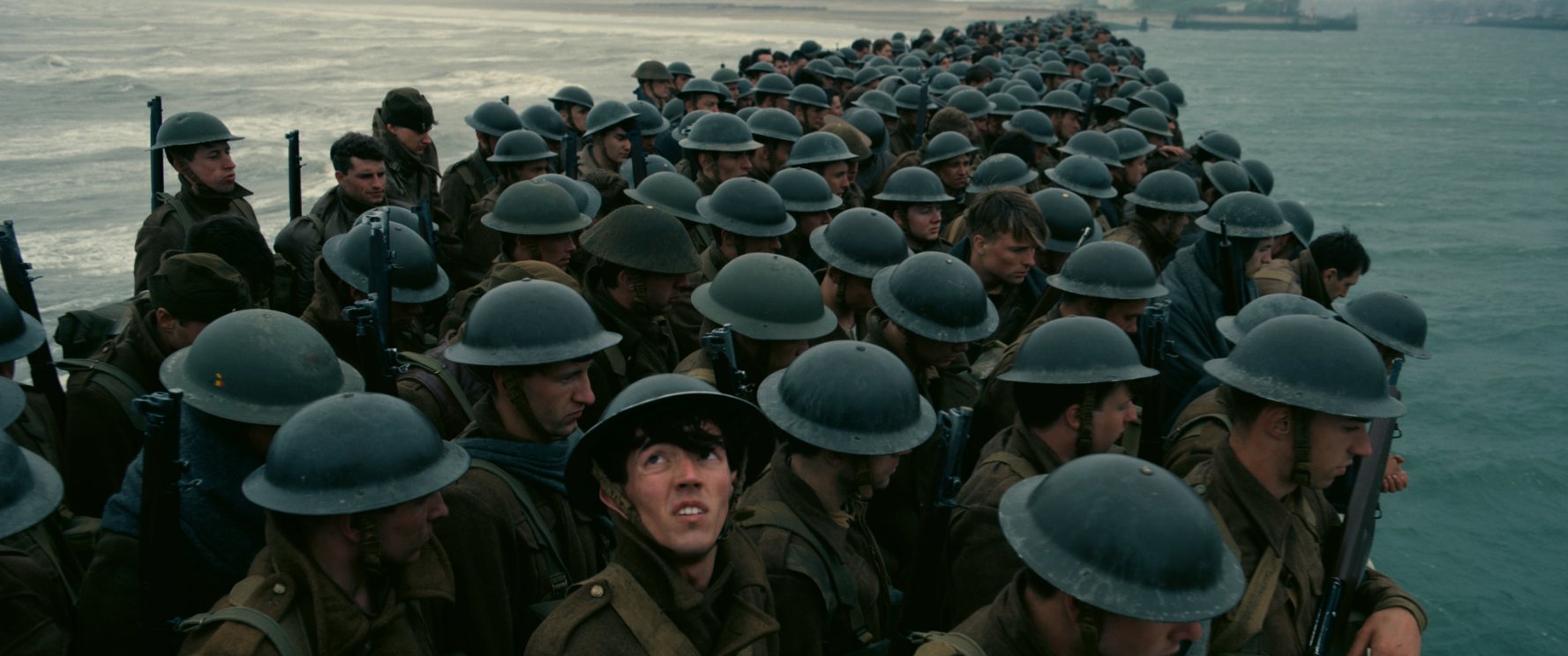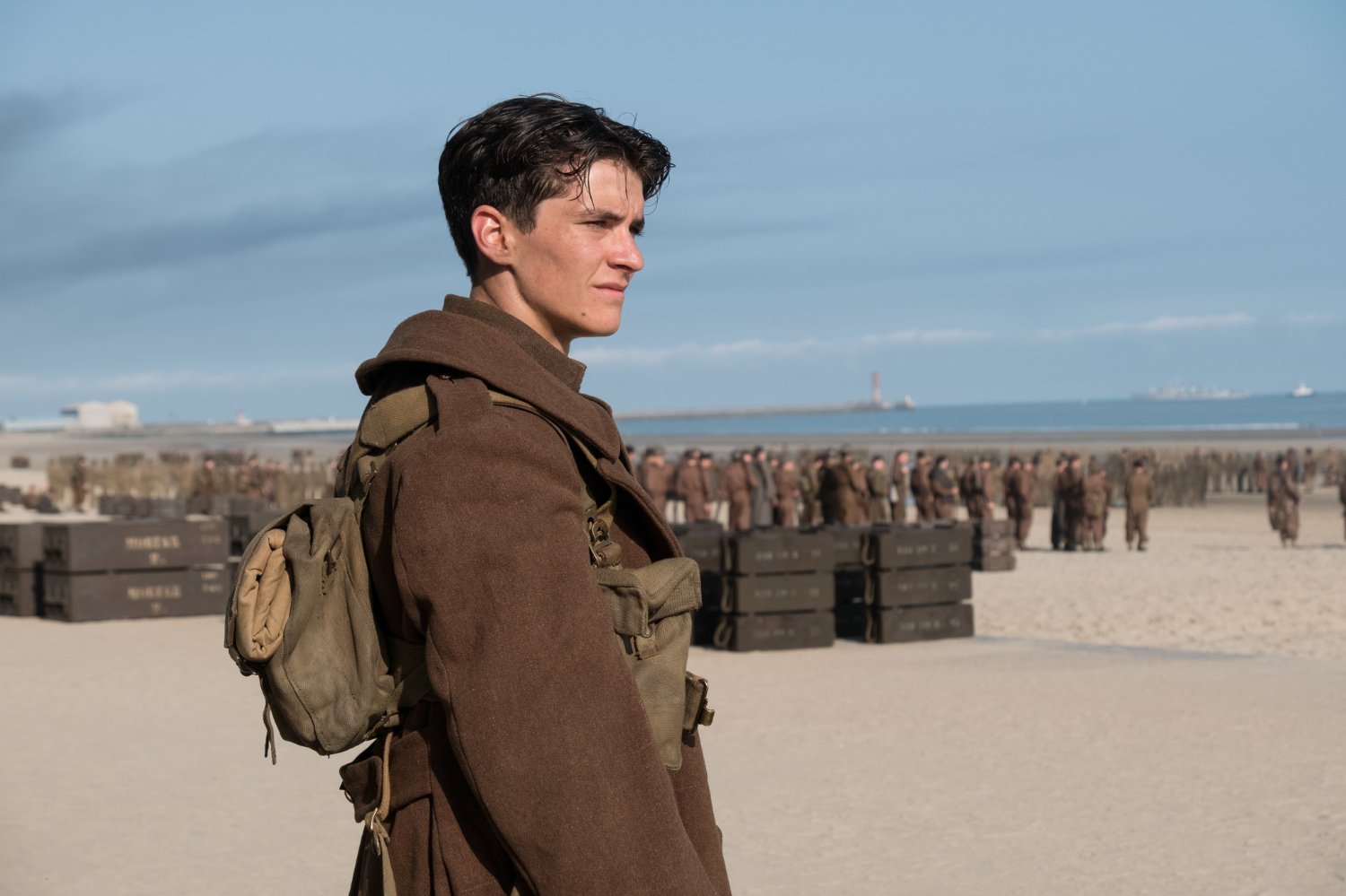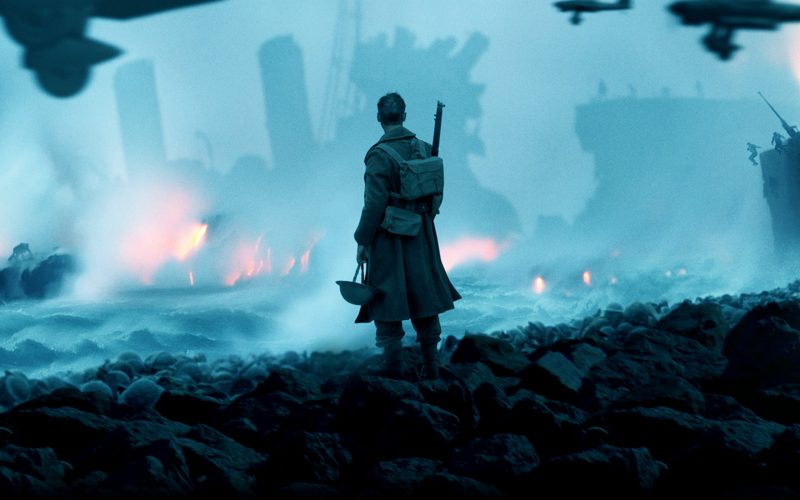In the years when Hollywood seems to be sustaining itself with an array of identical spin-offs, remakes, and adaptations, there are only a few directors left who are capable of producing truly original scripts. Christopher Nolan is one of those directors with incredibly innovative ideas. However, this time, Nolan, inspired by his travels with his former girlfriend and the haunting memories of the Dunkirk beaches, decided to make a film about it. This highly anticipated “spectacular” war drama has been in the works since last year. Of course, when the last name is Nolan, expectations are set exceptionally high. After all, this is the man who directed films like “Interstellar” and “Inception.” However, the war film we have been waiting for a year didn’t turn out to be as we expected. In reality, there is a simple truth: Nolan achieved what he had envisioned, but it seems we expected far too much from him based on his surname.
Before delving into the film, it’s essential to provide some context about what Dunkirk is and where it stands in history. One of the significant issues with the film is that Christopher Nolan doesn’t tell us the story of Dunkirk. He assumes the audience already knows…

During World War II, as the Germans, under the leadership of Hitler, rampaged across Europe, the British, French, and Belgians challenged them as allies. However, the outcome is futile. The Germans conquered Belgium, causing Belgium to declare a ceasefire and leaving the British and French in a problematic situation. As the Germans continued their advance, moving from the south to the north of France, the British found themselves cornered on the beaches of Dunkirk. 400,000 soldiers are trapped by the German army. However, the Germans made a mistake that was open to many theories and changed the course of World War II. Maybe even the future of the world.
The German army could have advanced into Dunkirk and had the power to destroy the 400,000 soldiers, but General Gerd von Rundstedt, for some reason, stopped the Dunkirk offensive for 48 hours, a decision that Hitler is said to have approved. According to them, this choice, which is not considered a “colossal mistake,” becomes a massive blunder due to the magnificent mobilization of the British. There is a 100-kilometer sea distance between France and England, so everyone in England who had a boat by the coast set sail for France. Of the nearly 900 boats/ships that arrived in Dunkirk, 338,000 soldiers were evacuated. Hitler and Rundstedt’s decision led to the escape of 338,000 soldiers and ensured that the war did not end there.
Nolan, influenced by his visit to Dunkirk in 1992, wanted to turn the region and its story into a film. However, while making the film, he forgot one thing: not everyone knows this story. Or let’s put it this way: Europeans might have seen the story in their history books at school, but it’s evident that the entire world is unaware of these events. Dunkirk, a war point I didn’t know about until recently, confuses the viewers, with probably around 70% of those who watch it, like myself, not being informed. Moreover, Nolan, instead of explaining the whole process, decides to start the story right in the middle, with the stranded soldiers on the beach. If you’re not familiar with the subject, you’ll have to wait for quite some time to understand what these soldiers are waiting for and what’s happening. Nolan intentionally makes this choice. Here’s where I disagreed with the director. While we thought we would see the entire story of Dunkirk, the director only wants to focus on the tension and the reality of fear on the beach.
One major issue arises due to the fact that the story is presented to us from the middle: a lack of motivation. We can’t understand why the tension in the film is happening. Moreover, a rather critical question remains unanswered: “Why are these 400,000 soldiers running away?”. That’s a significant number of soldiers. If they were fighting, why wouldn’t they be able to hold off the enemy? A mysterious monster suddenly emerging from the underground wouldn’t make 400,000 soldiers run away. They would stay and fight. Yet, 400,000 soldiers are retreating, and the reason is unclear. What’s worse is that there’s not a single German soldier in the film. The director has only focused on the part where the survival happens. He didn’t delve into the details or attempt to understand why the general stopped the German advance or even mention Hitler’s name throughout the entire film.

The director has explicitly stated that this film is a War Drama. Indeed, it is. From a technical perspective, Nolan, as a newcomer to the genre, has successfully crafted some remarkable war scenes, although not as brilliantly as Spielberg or Malick. The film’s music and sound design are incredibly well done and particularly noteworthy. Mark my words: “Dunkirk” will unquestionably take home the Oscar for Best Sound Mixing and Best Sound Editing in 2018. Similarly, Hans Zimmer’s music could bring home an award next year. The music is so spectacular that it could make a lousy film appear suitable. The film isn’t bad, to be precise. I’ll write that down. The atmosphere is exceptionally well-crafted. The audience can feel the fear and the struggle for survival on the beach. The director successfully conveys what he wants to show. The film’s main problem is the set of expectations. Nolan mentioned that he was making a War Drama. For someone like me, who went to the film with high expectations, it was unfortunately a bit of a disappointment. Therefore, I need to clarify that this critique is written from a highly personal perspective.
In summary, “Dunkirk” is a technically impressive film that entirely focuses on the tension and fear on the beach, leaving those with high expectations, like myself, somewhat disappointed because the director doesn’t explore the entire story and chooses to portray the evacuation part in a complex manner. You should still go and watch it. It’s worth it, if only for the music and sounds. However, before you go, I recommend reading up on the events and the story. Without it, understanding what’s happening in the film may be a bit challenging.

Cast & Crew
director: Christopher Nolan
writers: Christopher Nolan
starring: Fionn Whitehead, Tom Hardy, Mark Rylance, Kenneth Branagh, Cillian Murphy, Barry Keoghan, Harry Styles
USA – FRANCE – NETHERLANDS – UK | 2017 | 107 MINUTES |
